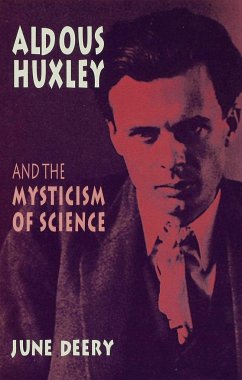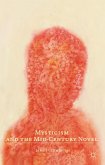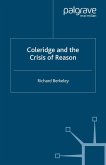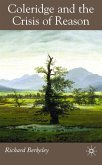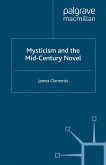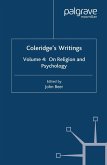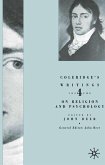Can religious belief survive in a scientific era? Aldous Huxley thought so. His early recognition of the profound significance of twentieth-century science and the need for moral and spiritual direction resulted in his espousal of mysticism. An examination of his fiction and nonfiction reveals Huxley's significance for cross-disciplinary debates between religion, science and literature and provides examples of the transmission or refraction of knowledge from one discourse to another.
Bitte wählen Sie Ihr Anliegen aus.
Rechnungen
Retourenschein anfordern
Bestellstatus
Storno

